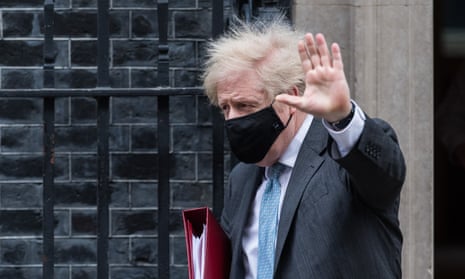Support for a “progressive alliance” is growing in British politics. The notion has surfaced before, often as the spectre of a hung parliament looms on the eve of an election. This time, however, Labour’s path to victory is so fraught that the idea is gaining traction four years before an election.
A progressive alliance is the idea that centre and leftwing parties come together behind a shared political agenda. Through collaboration during elections, progressive parties can thwart the substantial electoral advantage given by the first-past-the-post system to the Conservatives and place their electoral power behind a common agenda for change.
In recent history, Labour has been hesitant to sign up to any progressive alliance. Following the European referendum, some centre-left parties began standing aside for one another in an attempt to harness a progressive voting bloc against the rise of pro-Brexit parties. In the June 2017 election, around 30 seats were kept out of Tory hands through cooperation. However, it’s estimated that about 60 seats were lost because Labour refused to step aside. While Jeremy Corbyn feigned a sense of pluralism, the reality of his politics was deeply tribal. Labour would rather have no power than share just a tiny bit of it.
Next time around, boundary changes have made clear the need for a progressive alliance. Labour will need to win an extra 124 seats to take them to a majority in the House of Commons. But the cards are stacked against them. Support for the party is in decline in Scotland, Boris Johnson is set to receive a vaccine bounce in the polls come autumn, and once the peak of the pandemic is over the Conservatives will be able to return to their levelling-up agenda.
Labour is focusing relentlessly on recapturing the so-called red wall seats in the north and the Midlands, but winning all of them doesn’t put it close to the seats needed to win outright. The party also needs to win seats in the south such as Reading, Swindon and Southampton and for the Liberal Democrats to win in many of the 80 seats in which they are second to the Tories. An electoral alliance is the only way to defeat the Conservatives.
A progressive alliance won’t be plain sailing, and hurdles will have to be overcome. Each party must allow for a spirit of pluralism. While similarities are essential, the Lib Dems, in particular, must be given the space to win over soft Conservative voters without them being denounced as “yellow Tories” from the more tribal factions of the Labour party.
At the same time, if this is to be more than just a cynical “stop the Tories” coalition, an agreement needs to be found on a common platform in support of a secure, sustainable and just society, post-Covid. One essential tool to rebuild trust in society will be replacing the first-past-the-post system with proportional representation, so people can finally feel that they have a voice in British democracy.
Standing aside for each other might work in some places, but where possible voters should be allowed a choice. As in 1997, tactical campaigning by redeploying resources away from areas in which fellow progressives show strength might be a better option. To work all this through demands trust and relationship-building in the barren soil of competitive Westminster politics.
The biggest hurdle to a progressive alliance is Labour’s self-perceived monopoly status. The party has to shift from a mindset in which it is the one and only tent on the centre-left to seeing the progressive terrain like a campsite of shared values and endeavour, with parties retaining their own identity. The most challenging point of cooperation for Labour will be the need to work alongside the SNP who are likely to hold the balance of power.
To date, Labour has opted for no power over sharing, but things are starting to give. Not least because 76% of its members back proportional representation. Progressives of all parties stand on a burning platform – safer ground must be found. The prize isn’t just the end of more than a decade of Conservative rule but, the biggest prize of all, the refashioning of our divisive political structures and culture into one of collaboration – a truly new politics for a new society.

